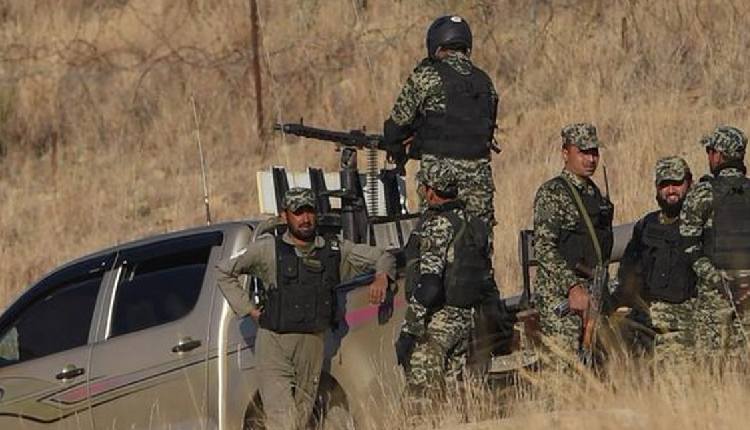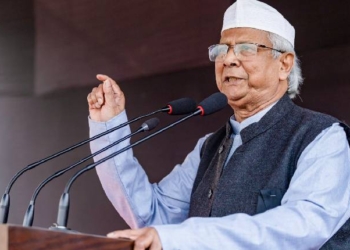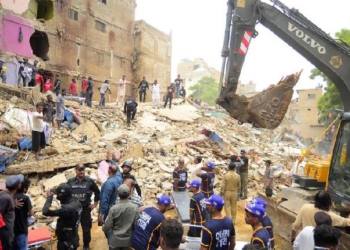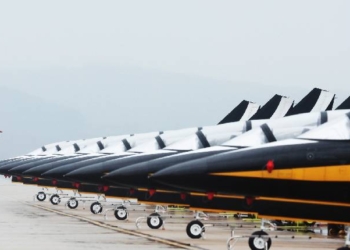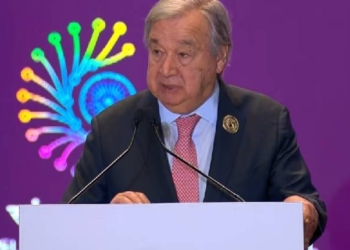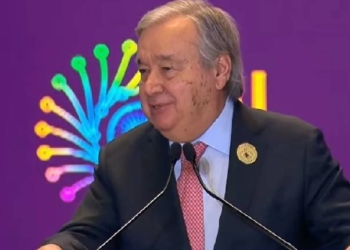Kabul: Heavy fighting between Pakistani forces and Afghanistan’s Taliban militia along the Durand Line bordering the two nations has left scores dead and hundreds injured, according to reports on Wednesday.
There were reports of cross‑border exchanges, using artillery and tanks, even as Pakistan again carried out an airstrike in Afghanistan’s Kandahar province on Wednesday, said reports.
Pakistani authorities said they repelled large‑scale Taliban attacks near Spin Boldak and Balochistan and that nearly 20 members of the militia were killed. However, the two sides claimed conflicting casualty figures amid the firefight that resumed after a brief lull.
The Taliban claimed that Pakistani forces had launched an offensive on Wednesday, killing at least a dozen civilians.
“In retaliatory operations, multiple Pakistani aggressor soldiers were killed, their posts and centres were captured, weapons and tanks fell into the hands of Afghan forces, and most of their military installations were destroyed,” Taliban spokesperson Zabihullah Mujahid posted on the social media X.
Taliban-controlled social media handles also posted short videos claiming the capture of alleged Pakistani soldiers. They also said to have destroyed a part of the border fence at Spin Boldak in Afghanistan’s Kandahar province, connecting the Baluchistan district in Pakistan.
“We are still working to determine the full scale of civilian harm,” the United Nations Assistance Mission in Afghanistan (UNAMA) posted on social media ‘X’, calling on “all parties for an immediate end to hostilities to protect civilians and prevent further loss of life.”
The UN body said it has recorded scores of killed and injured Afghan civilians “as a result of recent cross-border clashes between #Afghanistan’s de facto security forces and Pakistani military forces.”
Meanwhile, Islamabad briefed foreign envoys to explain what it called “legitimate security concerns” and the need to protect territorial integrity.
Afghan authorities and Taliban spokesmen accused Pakistan of excessive use of force and reported civilian casualties. Qatar and Saudi Arabia have asked the warring nations to de‑escalate and open channels for talks.
Beijing urged both Kabul and Islamabad to protect Chinese personnel involved in several projects in Afghanistan. Rising differences between Islamabad and Kabul had led to simmering tensions, leading to several skirmishes along the disputed border.
Pakistan’s aerial bombing, claimed to have been targeting a Tehreek-e-Taliban Pakistan (TTP) leader, coincided with the visit of Afghanistan’s Foreign Minister Amir Khan Muttaqi to India.
Following his diplomatic and trade talks with India’s Foreign Minister S. Jaishankar, a joint statement was released, which, much to Pakistan’s chagrin, reiterated the fact that Jammu and Kashmir is a part of India.
Following the border firefight, Kabul cancelled a planned Pakistani delegation visit. Taliban fighters launched an attack on Pakistani outposts at the border late Saturday, October 11, night in what was claimed to be in retaliation for Islamabad’s sudden surge in bombing Afghan cities, including the capital Kabul, last week.
Humanitarian agencies have warned that such clashes threaten the already fragile civilian livelihoods and cross‑border commerce, with border crossings reportedly closed.
Islamabad has been alleging that the Afghan Taliban administration was sheltering TTP fighters who have stepped up attacks in Pakistan. In retaliation, thousands of Afghan refugees have been evicted from Pakistan.
The Mujaheddin, an armed militia, was armed and trained by Pakistan’s Inter Services Intelligence (ISI), reportedly with assistance from US Central Intelligence Agency (CIA) during a covert operation against Soviet forces occupying Afghanistan for a decade till 1989. The Taliban, TTP, are said to be their offshoots.
(IANS)




